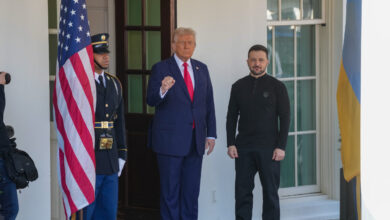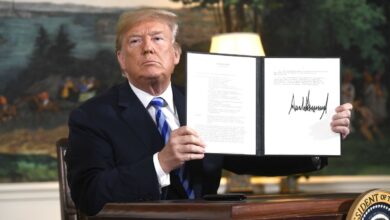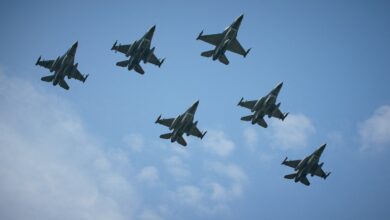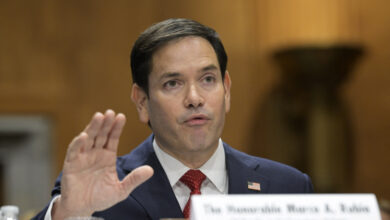Turkey agrees to NATO Baltic defense plan after Syria rift
Erdogan threatened to block the plan if NATO allies did not label the Syrian YPG as terrorists
Turkey joined its NATO allies in an agreement on a new defense plan for the Baltic countries and Poland on Wednesday, December 4, after threatening to block the initiative if other members of the alliance did not label a predominately-Kurdish Syrian militia as terrorists.
“We met with President of Turkey Recep Tayyip Erdogan and agreed on NATO Defense Plan for the Baltics,” Lithuanian President Gitanas Nauseda tweeted.
Turkey previously threatened to block the defense plan if other NATO members did not condemn the People’s Protection Units (YPG) – which fought alongside the U.S.-led Coalition in the ground war against Islamic State – as terrorists.
Turkey considers the YPG to be the Syrian branch of the Kurdistan Workers’ Party, or PKK, which has waged an insurgency against the Turkish state since the 1980s.
Speaking at a summit in London on Wednesday, NATO Secretary General Jens Stoltenberg said an agreement was reached would not say whether Turkey had been offered concessions.
“Today we have agreed to the updated plan for the Baltic countries and Poland, so I welcome that, and it shows we are able to also move forward,” Stoltenberg said.
U.K. Prime Minister Boris Johnson said Wednesday that a meeting with Turkey’s President Recep Tayyip Erdogan attended by French President Emanuel Macron and German Chancellor Angela Merkel resulted a recognition of the “very real threat” of the PKK to Turkey’s security.
Johnson said the meeting’s attendees agreed to continue discussions with Turkish officials about “the great complexities of the situation in northern Syria.”
But Macron struck a different note on Wednesday, saying no consensus could be reached with Turkey on defining terrorism. “I don’t see any possible consensus,” Macron said.
The French government has been critical of Turkey’s incursion against the YPG, which has killed hundreds of people and displaced more than 100,000. Macron and Erdogan traded barbs last month after the French president described the NATO alliance as “brain dead” and Erdogan suggested the same of Macron.
Earlier on Wednesday, U.S. President Donald Trump held an unscheduled side meeting with Erdogan during which the two discussed the situation in northern Syria and “the Kurds,” Trump told reporters, in apparent reference to the YPG. “It was a very good meeting, I think,” Trump said.
Turkey and allied Syrian rebel groups fighting under the banner of the Syrian National Army launched a military incursion dubbed Operation Peace Spring against the YPG in Syria in October over the objections of NATO allies after a phone call between Trump and Erdogan.
The move destabilized Syria’s north and led U.S. military forces to hastily withdraw to avoid the crossfire, and has led to widening rifts within the alliance.
With reporting from AFP












